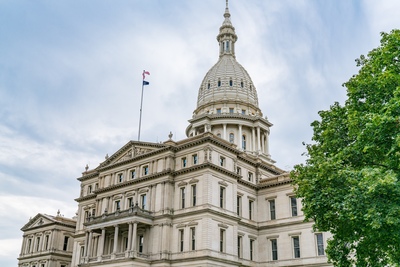Following a legislative session that saw lawmakers introduce 15 separate bills aimed at increasing accountability and clarity in government relations, Hawaii Governor David Ige (D) has signed three of the bills into law. The legislative package, with each bill enacted within the last month of the session, makes several tweaks to the state’s compliance code, with the overall aim of reducing violations and enhancing ethics in government relations.
Redefining Lobbyist, Lobbying, and Expenditure
The first bill (
HI HB 511) makes several key changes to the law governing lobbyists in the state. The Hawaii State Legislature adopted this measure based on a belief that some existing definitions were “both under — and over — inclusive,” and found that the law's existing structure created unnecessary administrative burdens and complications.
The bill makes the following changes to definitions in the lobbying law:
- Expenditure. The bill completely replaces the exclusions section under the definition of “expenditure” to provide that costs of travel within the state do not constitute lobbying expenditures so long as the lobbyist is not paying for a state official's travel expenses. Under the new definition, costs for the preparation of grant requests also do not constitute expenditures.
- Lobbying. The definition of “lobbying” has been completely substituted, and is presented here in its entirety: “[C]ommunicating directly or through an agent, or soliciting others to communicate, with any official in the legislative or executive branch, for the purpose of attempting to influence legislative or administrative action or a ballot issue. ‘Lobbying’ shall not include the preparation and submission of a grant application pursuant to chapter 42F by a representative of a nonprofit organization.”
- Lobbyist. The bill makes extensive revisions to the definition of lobbyist. A lobbyist is now:
- Any individual who receives or expects to receive $1,000 or more in compensation to engage in lobbying;
- Any individual who, for pay or other compensation, on behalf of someone else:
- Spends more than five hours lobbying in any reporting period;
- Spends more than 10 hours lobbying in any year;
- Expends more than $1,000 on lobbying in any given reporting period.
- Excepted from this definition is any nonprofit employee who spends fewer than 10 hours in any month lobbying on a grant proposal, provided that that employee does not otherwise meet the definition of a lobbyist.
State law also requires a lobbyist to file a notice of termination once the lobbyist ceases to engage in lobbying. Under the previous law, only the lobbyist had the authority to file this notice. The new law allows the entity that employed the lobbyist to file notice if the lobbyist fails to.
Increasing Ethics Violation Penalties
The second bill (
HI HB 508) is a short one with two central provisions:
- It increases the penalty for violating ethics laws. Previously, the law provided that a person charged with violating state government ethics laws was subject to an administrative fine up to $500. Under the new bill, that amount rises to $1,000 per violation.
- The bill also adds a new means of resolving these cases. The prior law did not provide for the voluntary disposal of ethics violation disputes. With the new bill, the state ethics commission and the person charged with a violation may agree to resolve any allegation of violation without the time and expense of convening a hearing.
In theory, these two provisions may serve to reduce the burden on the state ethics commissions by imposing a steeper penalty for violations and adding a more streamlined process for dispute resolution.
Clarification of “In-Kind” Contributions
The third bill (
HI HB 279) is geared toward reducing ambiguity in the laws regarding campaign contributions. Previously, the law provided that financing the distribution of materials prepared by a campaign constitutes a contribution to that campaign, what is commonly known as an “in-kind” contribution. The new bill clarifies the circumstances in which this provision does
not apply:
- Where campaign materials are prepared and used by the campaign of a candidate for governor or lieutenant governor in support of a co-candidate in the general election;
- When materials are distributed or republished by the candidate or campaign that prepared them;
- When materials are incorporated into an opponent’s advertising, or by a noncandidate committee, advocating for the defeat of the candidate that prepared them; or
- When the materials are incorporated into a news story or editorial (what campaigns refer to as “earned media”), unless the candidate or candidate committee also owns the media outlet that published the material.
The bill should help avoid strange outcomes, such as a candidate being investigated for failure to report making a “contribution” to an opponent.
In passing these three bills, Hawaiian lawmakers aimed for greater efficacy in the administration and enforcement of the state government ethics laws by providing additional clarity on who is subject to those laws.




